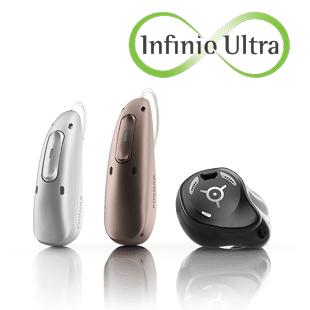
Special issue on stigma of hearing loss and hearing aids
New research published in the International Journal of Audiology explores how stigma is experienced by adults with hearing loss, their families, and hearing care professionals.
Hearing care professionals often talk about hearing aid stigma as the major reason why adults with hearing loss do not accept devices – but is that really what is happening? New research offers a more complex picture, one that may challenge common assumptions.
Here is a sneak peak of what you’ll find in the International Journal of Audiology special supplement: “To Tell or Not to Tell: Exploring the social process of stigma for adults with hearing loss and their families.”
This is the first in-depth exploration of stigma in this population — examining the experiences of adults with hearing loss, their families, and clinicians.
The research had two phases:
1. Qualitative research – Twenty adults with hearing loss (half wore hearing aids and half did not) completed interviews, surveys, Ecological Momentary Assessments and video recordings of real-world conversations. Their significant others were also interviewed and completed surveys and were included in the video recordings. Hearing care professionals (HCPs) were also interviewed about their perceptions of stigma.
2. Quantitative research – A large-scale online survey of 331 adults with hearing loss and 313 significant others across Australia, the US, and the UK, focused on their experiences of stigma and their perceptions of hearing loss and hearing aids.
What we found
- Stigma is situational, not fixed. Some adults with hearing loss experience stigma, but not all the time. It depends on the social context and the people they are with.
- Stereotypes persist. Adults with hearing loss, significant others and HCPs associated hearing loss and hearing aids with negative stereotypes: aging, disability, reduced intelligence, having a problem or weakness, and difference. Among these, aging was the most common.
- Perceptions differ across groups. There was a striking difference between the perceptions of adults with hearing loss and their HCPs. Adults with hearing loss focused on the stigma of hearing loss, whereas clinicians focused on the stigma of hearing aids. In fact, adults with hearing loss typically described modern hearing aids in positive terms – discreet, beneficial, and high-tech.
- Affiliate stigma was rare. While common in some health conditions, most significant others of adults with mild to moderate hearing loss generally did not report experiencing stigma themselves.
- Stigma impacts emotions. When stigma was experienced in everyday life, common emotional responses included frustration, embarrassment, fatigue, and sadness.
- Disclosure matters. People with hearing loss and their families often respond to stigma by not telling others about their hearing loss. People who do tell others about their hearing loss are more likely to accept hearing devices.
Implications for clinical practice
Based on the findings, the research team developed practical suggestions for adults with hearing loss, HCPs, as well as families and the general public. There are also helpful Infographics that you can display in your clinics or use as discussion points with patients and/or other health professionals.
Some example suggestions are:
- For HCPs: Adults with hearing loss who experience stigma often do not tell others about their hearing loss. So, one question that you can ask to help reveal if a client experiences stigma is: “Who do you tell about your hearing loss?”
- For adults with hearing loss: Telling others can be a helpful step in overcoming stigma related to hearing loss; however, this may be confronting and challenging and require support from a hearing care professional and/or family/friends.
- For families and the general public: Hearing loss starts to decline from 50 years of age, however there is still a belief that hearing loss only occurs in very old age. Raising awareness about acquired hearing loss can help break down these negative stereotypes.
If you’re looking for a well-rounded, research-based discussion on the topic of stigma, take time to explore this special issue of the International Journal of Audiology, edited by Katie Ekberg and Louise Hickson. Access the IJA special issue here.
You can find all the papers from this research project below:
- Introduction to the research and methodologies: Link
- Perspectives on stigma from adults with hearing loss, their families, and hearing care professionals: Link
- Findings on how adults with hearing loss, family members, and hearing care professionals respond to the stigma of hearing loss and hearing aids: Link
- Using Ecological Momentary Analysis to explore stigma experiences in the real world for adults with acquired hearing loss: Link
- Humor and managing hearing difficulties in real life everyday social interactions with adults with hearing loss: Link
- Experiences of stigma and hearing aid use among adults with hearing loss, in Australia, the UK and the US: Link
- Understanding affiliate stigma among significant others of adults with hearing loss: Link
- Bringing it all together: A stigma-induced identity-threat model for adults with hearing loss: Link
Acknowledgment:
This research was supported by a grant from the Hearing Industry Research Consortium. Many thanks to the research team: Professor Louise Hickson, Dr Katie Ekberg, Dr Barbra Timmer, Professor Nerina Scarinci, Dr Carly Meyer, Dr Monique Waite, and Dr Mansoureh Nickbakht.
